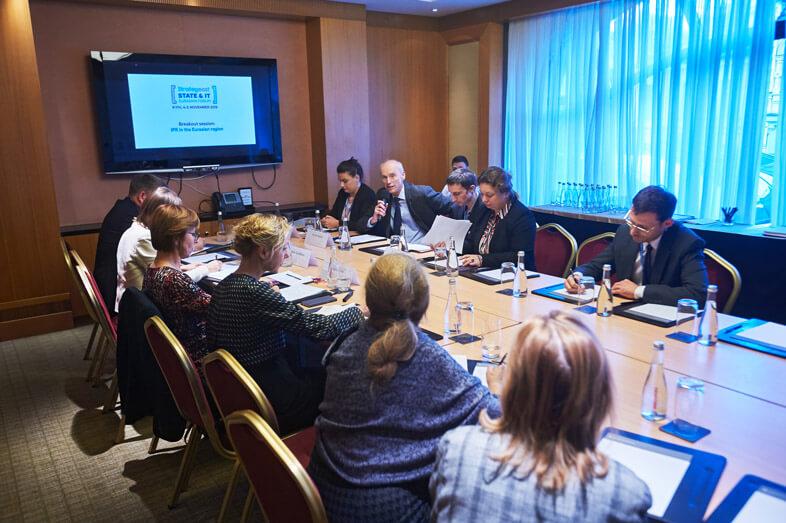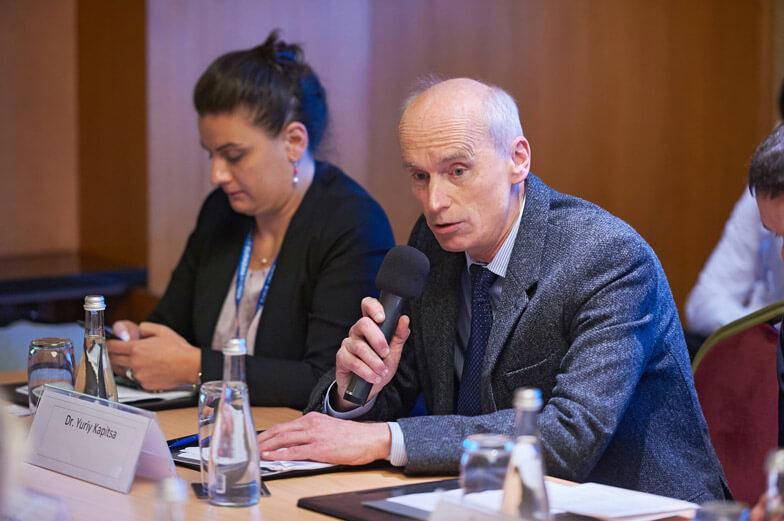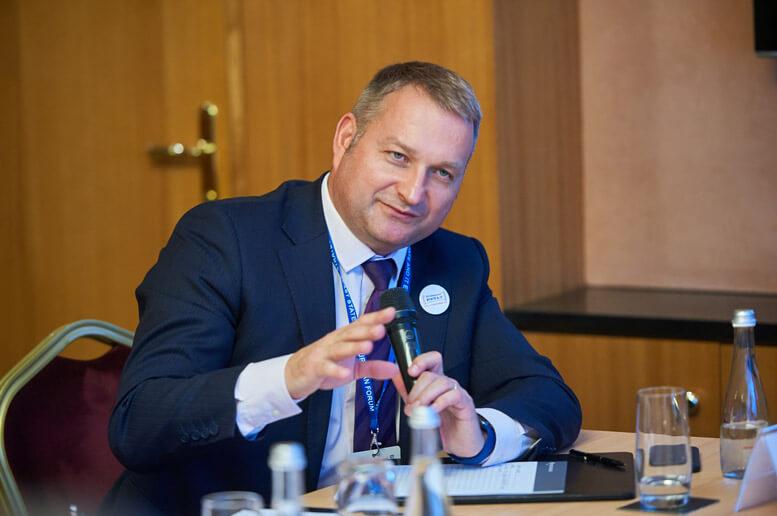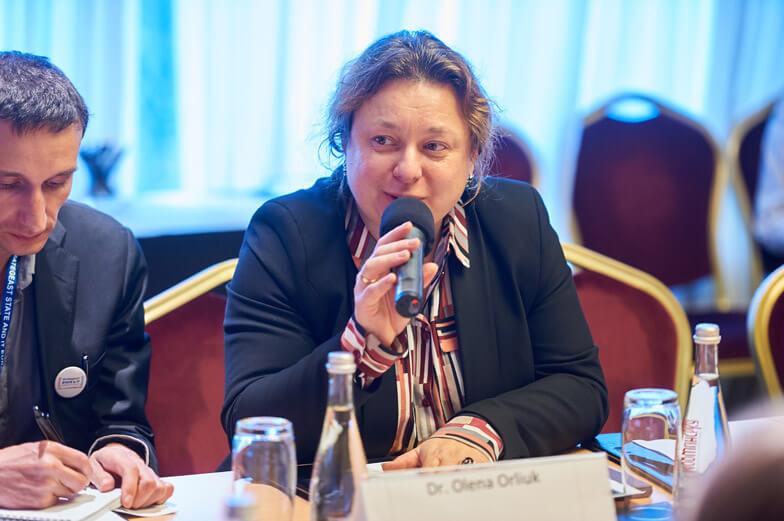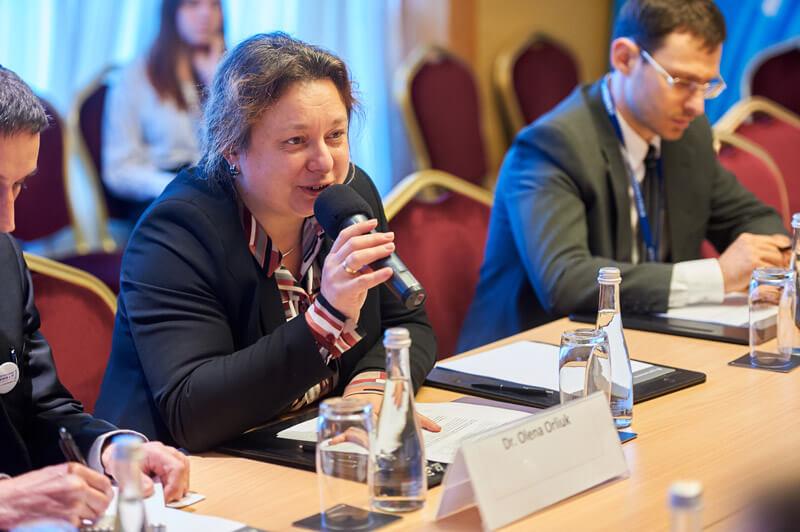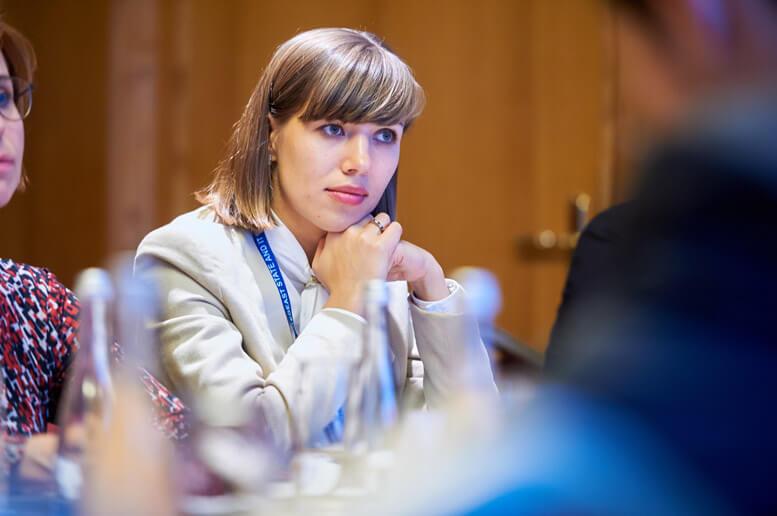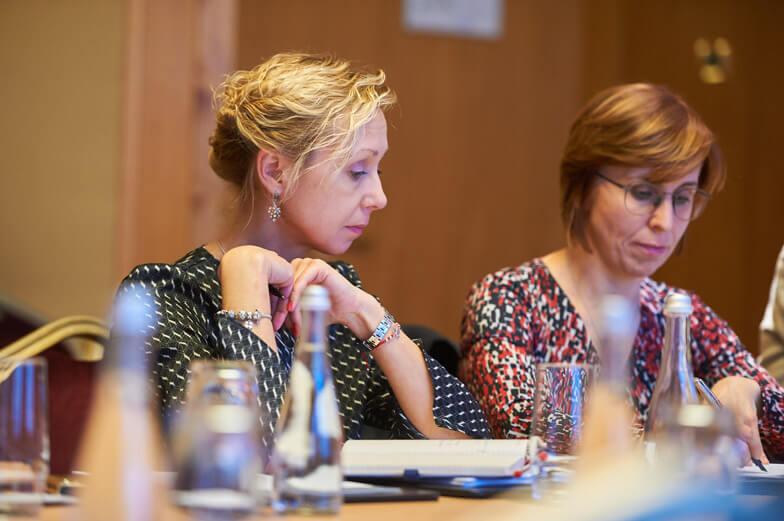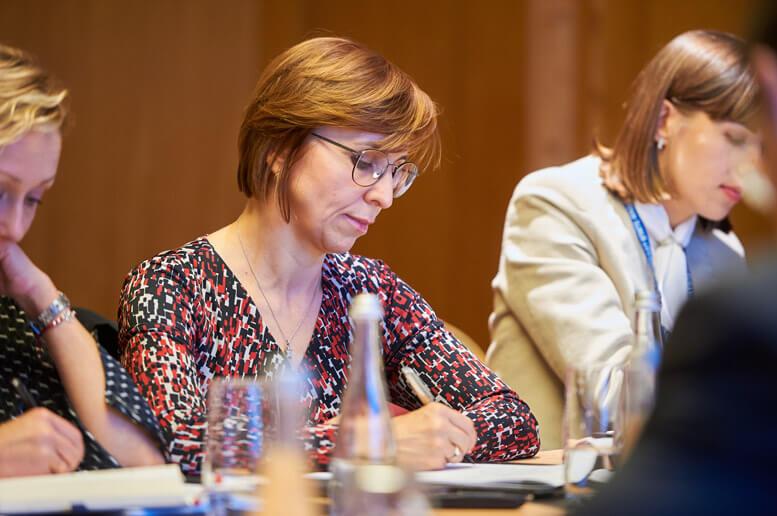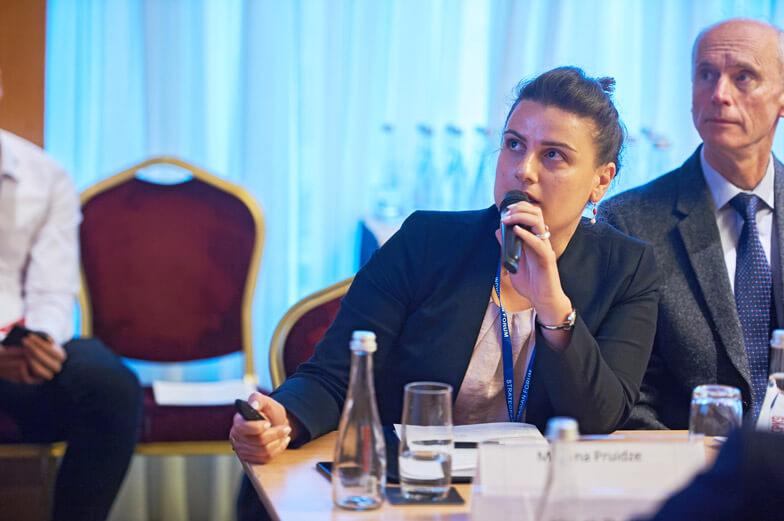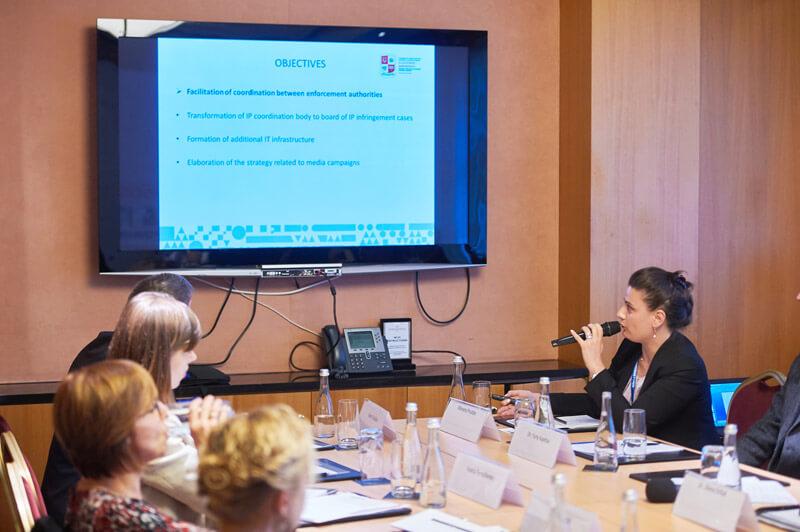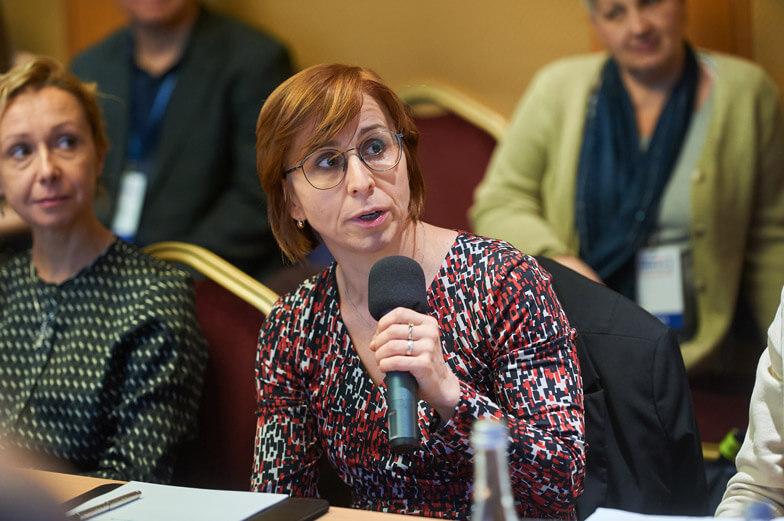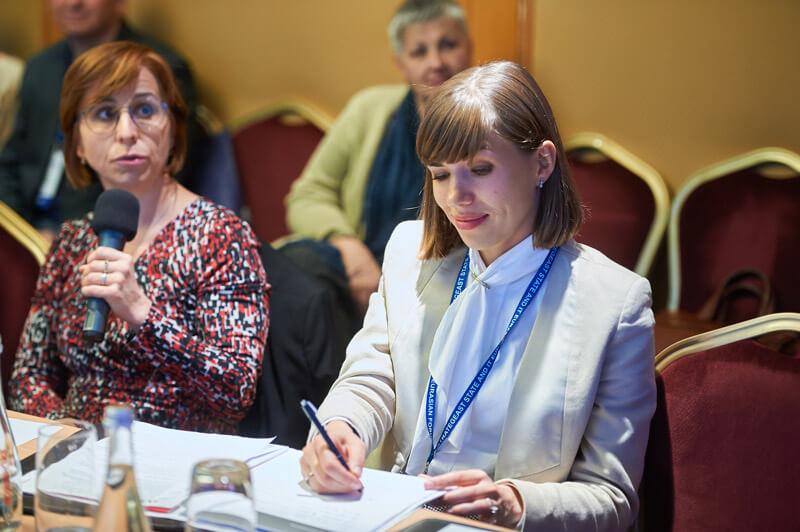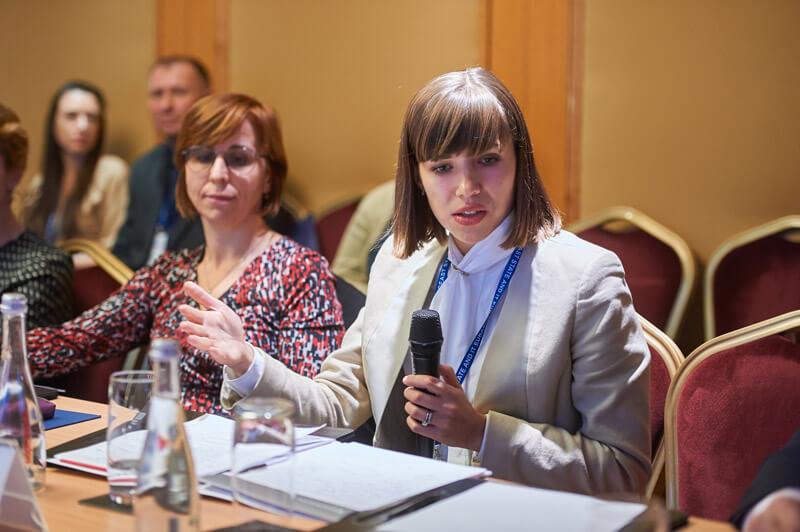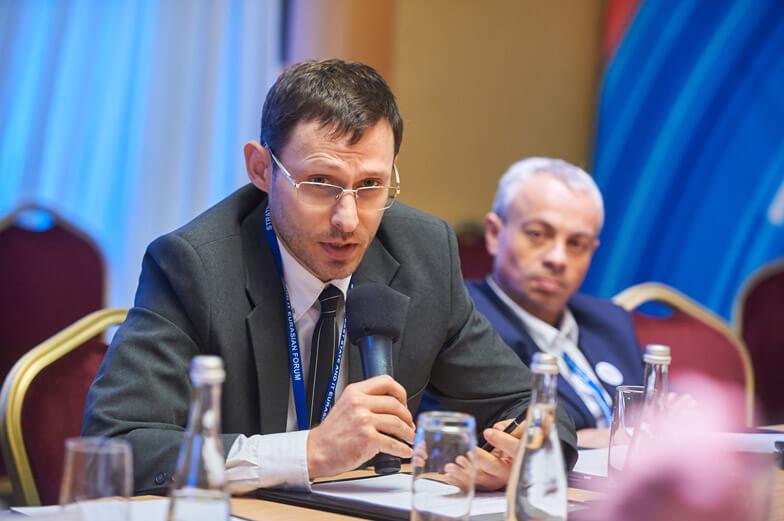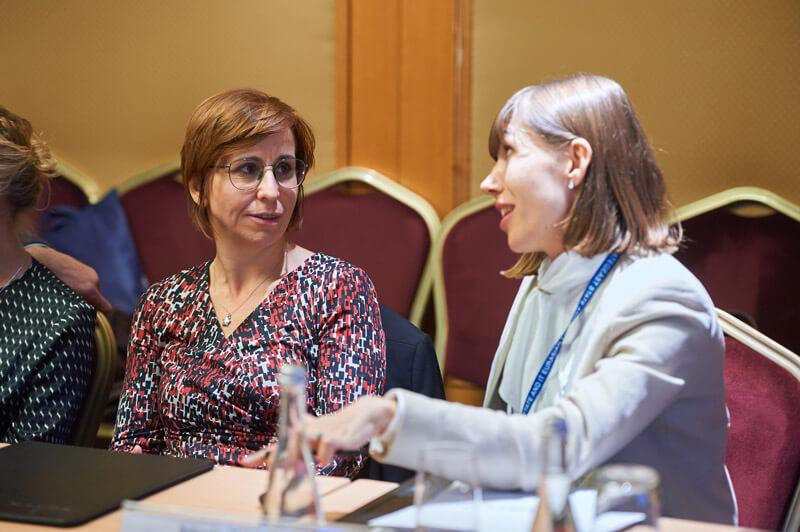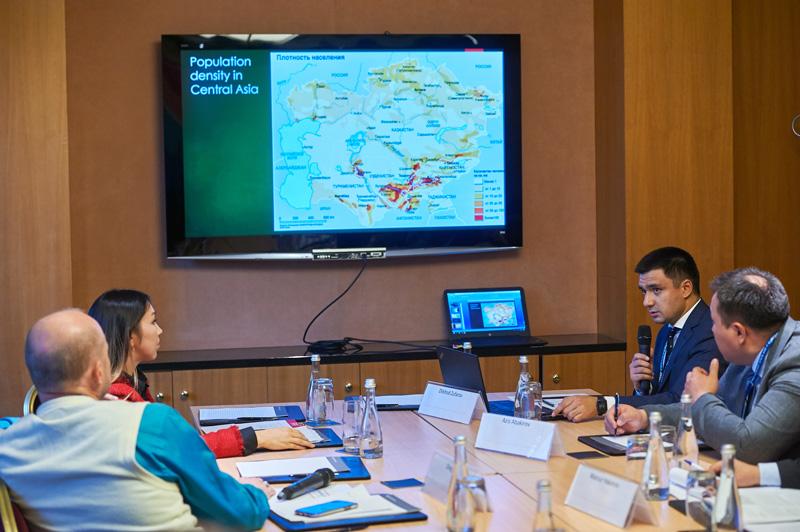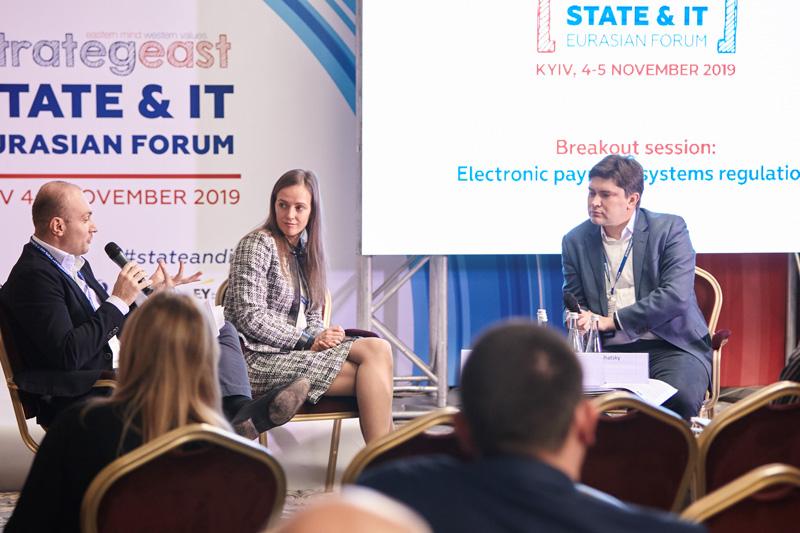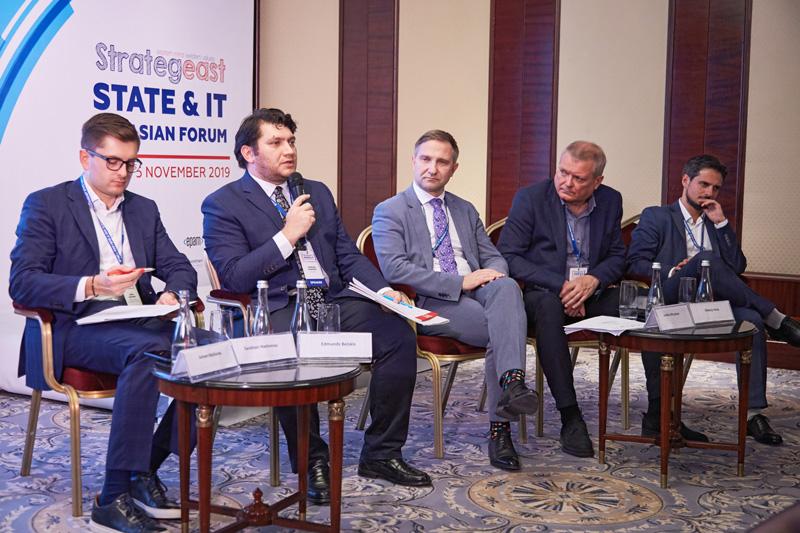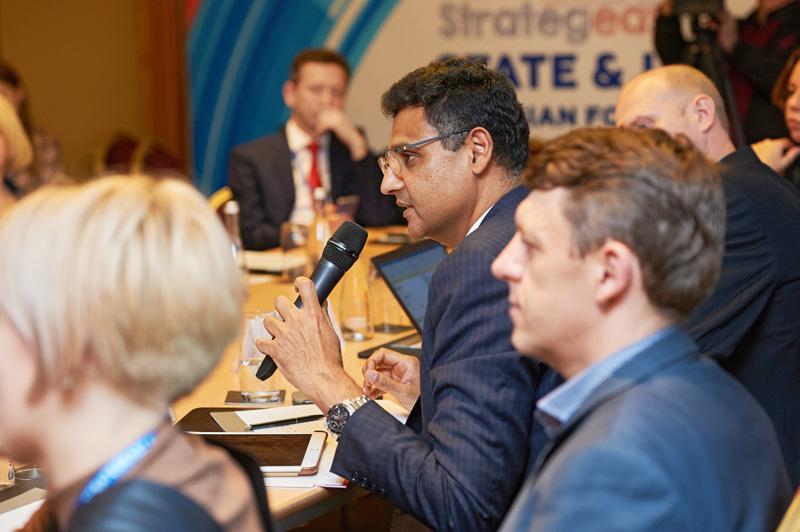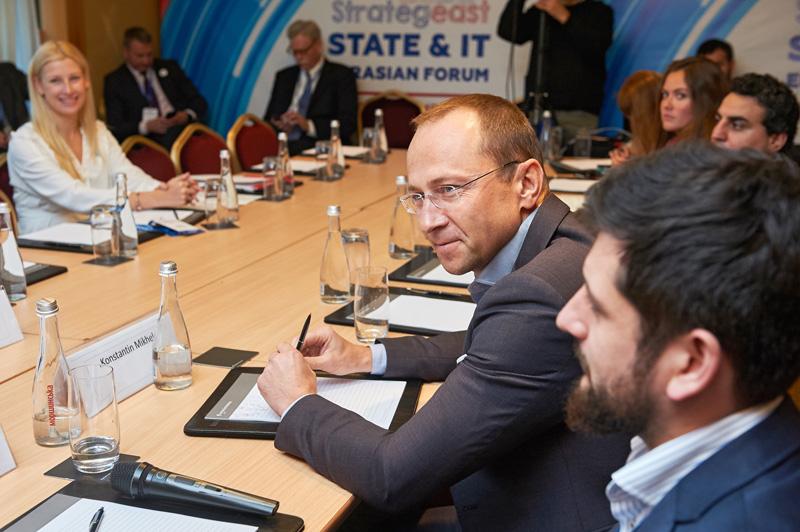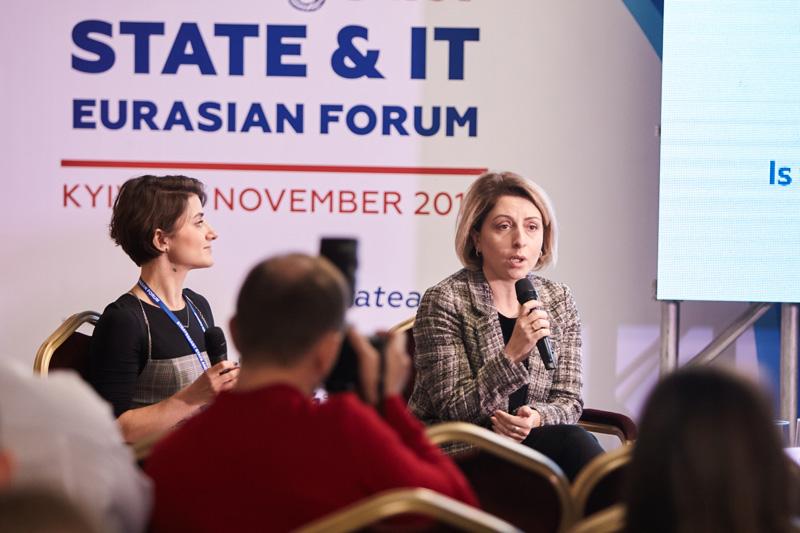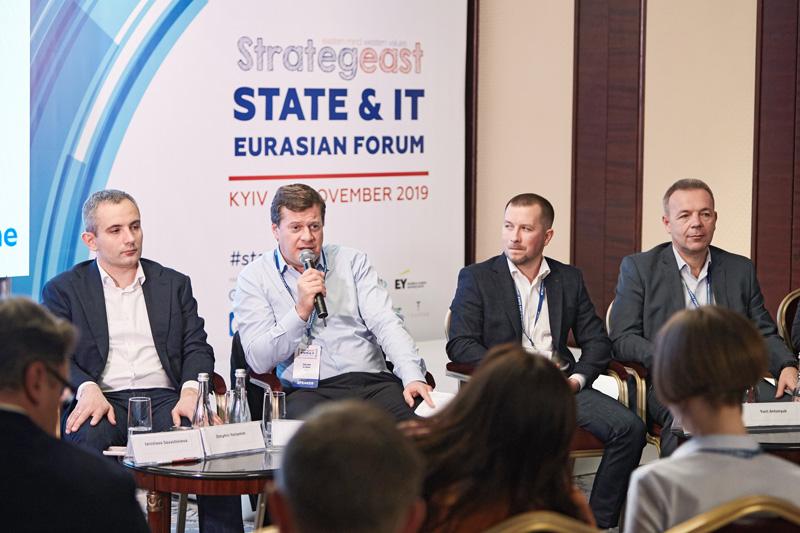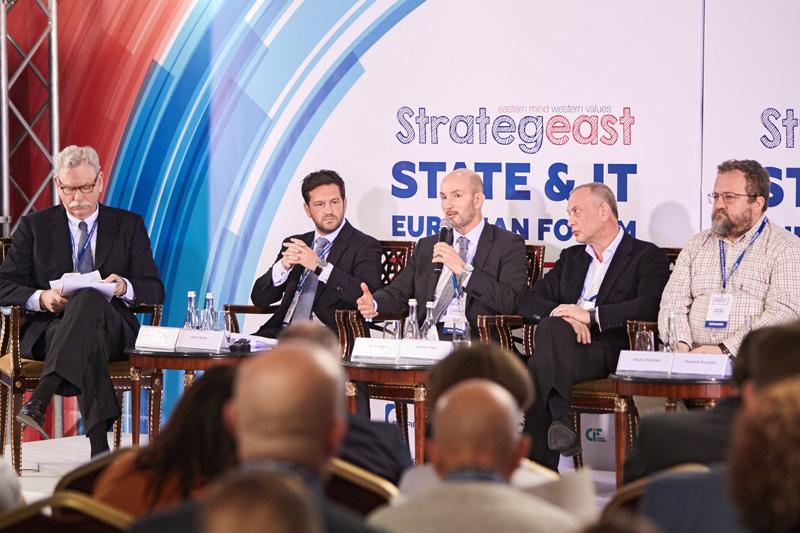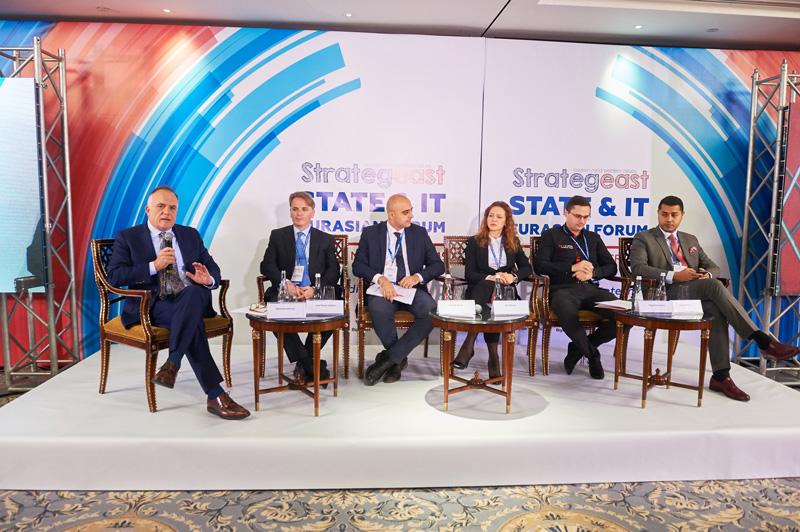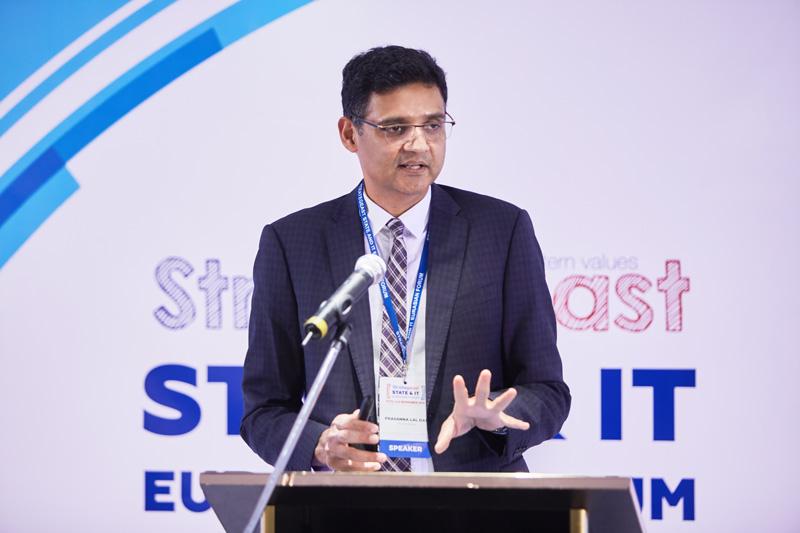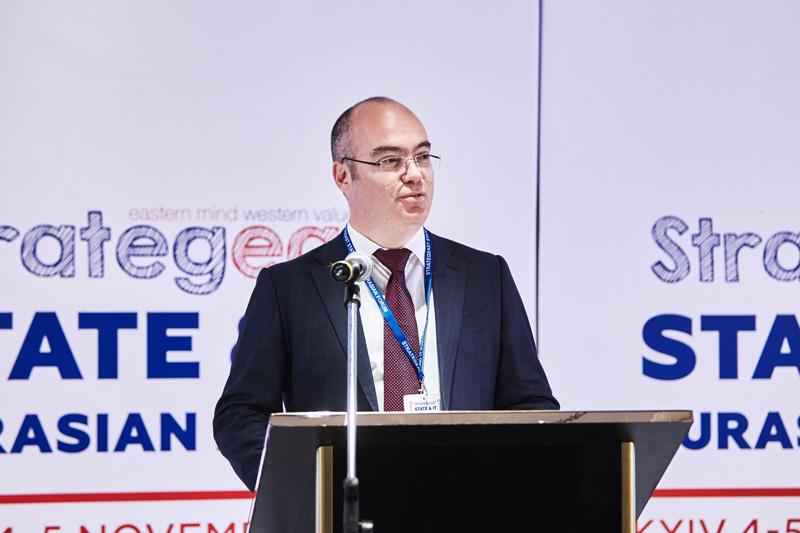![]() Presentation by Jana Herceg, Delegation of the European Union to Ukraine
Presentation by Jana Herceg, Delegation of the European Union to Ukraine
Download
![]() Presentation by Manana Pruidze, National Intellectual Property Center of Georgia – Sakpatenti
Presentation by Manana Pruidze, National Intellectual Property Center of Georgia – Sakpatenti
Download
The material is prepared based on speeches at the panel session ‘IPR in the Eurasian region’. The speakers on the panel: Jana Herceg, Head of Trade and Economic Section, Delegation of the European Union to Ukraine; Dr. Yuriy Kapitsa, Director, Centre for Intellectual Property Studies and Technology Transfer, National Academy of Sciences of Ukraine; Dr. Olena Оrliuk, Director, Scientific Research Institute of Intellectual Property, National Academy of Law Sciences of Ukraine; Manana Pruidze, Deputy Chairperson, National Intellectual Property Center of Georgia – Sakpatenti; Maria Tymofienko, Ukraine IP Court Project Manager, Queen Mary University of London; Valerii Zhaldak, Director of the IP Department, Ministry of Economic Development, Trade and Agriculture of Ukraine (moderator).
Joint Study by the European Patent Office and the European Union Intellectual Property Office on the weight of IP in the EU economy, conducted in 2019 showed:
- about 50% the EU industries are IP-intensive
- IP-intensive industries represent: 45% of EU GDP, or EUR 6.6 trillion annually
- IPR-intensive industries generate around 84 million or 39% of all jobs in the EU (29% directly and 10% indirectly)
- 80% of EU imports and 82% of EU exports are generated by the IPR-intensive industries, which translates into a trade surplus of around EUR 182 billion
- salaries in IPR-intensive industries are 47% higher than the market average.
Improving the situation with the protection of intellectual property rights in the countries of Eurasia can significantly improve the economic performance of these countries through the advantages that such protection brings: increase investment, improve business climate, promotion of creativity, protection of quality, transfer technology.
That is why the European Union is consistently promoting IPR values in the countries of Eurasia, primarily in the countries of the Eastern Partnership. The EU has negotiated DCFTAs/CEPAs with Eastern Partnership countries: Armenia, Azerbaijan (ongoing), Georgia, Moldova, and Ukraine, except Belarus.
The purpose of such negotiations between the European Union and the Eastern Partnership countries are:
- Contribute to additional growth and jobs for the benefit of businesses and consumers;
- Agree on common principles and establish a framework to cooperate closely;
- Further approximate the regulatory frameworks for the sake of greater predictability;
- Bring the standards of IP protection and enforcement in Eastern Partnership countries closer to that of the EU;
- Protect businesses which invest in creativity and innovation thanks to the respect and the enforcement of intellectual property rules;
- Encourage investment in research and development, as well as the creation of trade marks for goods and services.
To a large extent, these efforts of the European Union contribute to the protection of IPR in the IT industry. In particular, in such areas as:
- Copyright and related rights => softwares, websites, animations, video games
- Databases (only with UA and AZ) => sui generis database protection or copyright
- Trademarks => all goods and services rely on trademarks
- Designs => interfaces of websites
- Trade secrets (since 2017) => know-how, business models, marketing strategies, etc.
- Patents => no special protection for softwares, general provisions apply
- Topographies of semiconductors (only with UA and AZ) => microchips.
Georgia has achieved the greatest success in protecting IPR, of the countries of the Eastern Partnership, where all work on the protection of intellectual property rights is concentrated in one state agency – The National Intellectual Property Center of Georgia Sakpatenti. National patent service Sakpatenti was established in 1992, and later on was transformed into the National Intellectual Property Center.
Since its establishment and with the direct participation of Sakpatenti up to 30 laws, by-laws and numerous guidelines, regulating the legal mechanisms of accrual and enforcement of IP rights on different subject-matters were prepared and enacted. The current legislation is in full harmony with international standards, namely, it is in line with the requirements of the Agreement on Trade-Related Aspects of Intellectual Property Rights (TRIPS) administered by the World Trade Organization and is also compatible with the European Union legislation.
At the beginning of 2015, a memorandum was signed between WIPO and Georgia, providing, in particular, the development of the IP strategy of Georgia. At the end of 2015, the Draft Strategy for Developing IP System supporting Innovation, Product branding and Export led Economic Growth was published.
The strategy, in particular, provides: raising awareness on IP issues in business groups namely in SMEs to facilitate identification of IP objects and implement IP management in their activities: preparing of training materials, organizing trainings for business representatives, creating of business consulting centers; facilitation of commercialization of research results of universities and research institutions: creation of IP policy guidelines for universities, creation of TTOs, providing search services for universities; improvement of IP services for innovative companies and inventors: organizing training courses for patent and trademark attorneys, reform of patent attorneys system, training of lawyers, launching national IP training center; facilitation of coordination between enforcement authorities: transformation of IP coordination body to board of IP infringement cases, formation of additional IT infrastructure, elaboration of the strategy related to media campaigns.
A major tool for protection of intellectual property rights outside Georgia is the full integration of the country into the global IP systems, which became a priority policy direction for Sakpatenti. At present Georgia is a member of all main conventions and agreements on intellectual property protection. On the basis of international cooperation Sakpatenti undertakes educational activities, and provides trainings to its staff and other stakeholders in the area of intellectual property, in partnership with the World Intellectual Property Organization, the European Patent Office and foreign patent offices.
At the same time, there is a reverse example among the countries of the Eastern Partnership: Ukraine is the only country in Eurasia that is in the priority watch list of special 301 report issued by USTR.
However, today it is in Ukraine that the most decisive measures are being taken to improve the situation with IPR. In 1993 Ukraine adopted a law on copyright and related rights, and in this law it was fully implemented the directive on protection of computer program. So it means that twenty six years in Ukrainian there is a quite modern basis for development of information technologies and later Ukraine implemented the provisions of WIPO Copyright Treaty concerning databases, copyright protection of databases. So the basis for IPR protection in Ukraine for the development of communication technology is quite an internationally harmonized.
At the same time, Ukraine has yet to fully bring its legislation into line with the EU legal acts, which represents a significant work that can only be done by joint efforts of the Ukrainian government and the European Commission. As a first step, the Ministry of Economy of Ukraine initiated the creation of an IPR strategy in Ukraine. This strategy was developed as a result of the joint work of representatives of the Ministry of Economy and the National Academy of Sciences of Ukraine and the final version of this strategy will be published shortly. The strategy is designed not only to fully harmonize the Ukrainian legislation in the field of IPR with the European, but also to cover the issue of IPR in the most modern technologies. Such as, for example, artificial intelligence: it is necessary to legally determine who owns the property rights to products created by artificial intelligence.
Despite the high level of harmonization of the Ukrainian legislation in the field of IPR with the international standards, low enforcement in these matters is a big problem for Ukraine. Regular Ukrainian courts often fail to deal with IPR proceedings due to the judges’ lack of special knowledge. The creation of a specialized court on intellectual property issues in Ukraine should solve this problem. The creation of such a court was provided for by a general judicial reform in the country.
The Centre for Commercial Law Studies of Queen Mary University of London received an award from the joint Department for International Development (DFID) and the Foreign Commonwealth Office (FCO) Good Governance Fund (GGF) to deliver a project of technical assistance to support the establishment and operation of the new High IP Court of Ukraine. The Project is part of a broader programme of the U.K. government to implement judicial reform in Ukraine. The Project started on the 1 March 2018 and will run for two years with a total budget in excess of £850,000. The goal of the Project is to support the creation and operation of a successful and effective IP Court in Ukraine, in order to make a significant contribution to improved levels of business confidence, more attractive investment conditions and a commercial environment that incentivises innovation and creativity, stimulating economic growth and prosperity.
This project provides the following deliverables:
- Recommendations on the establishment and functioning of the IP Court in Ukraine:
Assess the effectiveness of the legislative framework that underpins the set-up of the IP court in Ukraine, and the manner in which it is intended to operate. Such assessment is envisaged to lead to recommendations based on, inter alia, relevant best practices identified in other jurisdictions with mature IP regimes. - Enabling adoption of legislative instruments on the establishment and functioning of the IP Court:
Develop recommendations in relation to the assessment, pertaining to the legislative framework supporting the establishment and the functioning of an effective specialized IP court. - Judicial training: Provide an intellectual property law-focused training for newly elected judges for the newly established IP Court in Ukraine.
- Government relations and public engagement: Liaise with the Project’s stakeholders, including the Government and judicial institutions, associations of lawyers and businesses, academics as well as other users of the system in order to ensure the implementation of the Project’s recommendations and establishment of a well- functioning IP Court.
- Post Project Impact Assessment: following the completion of the aforementioned deliverables, project management will seek to evaluate the extent to which the project objectives have been met.
Representatives of the United Kingdom were included in the supervisory board of the project:
- The Right Hon Lord Kitchin, Justice of The UK Supreme Court
- His Honour Judge Hacon, Presiding Judge of the Intellectual Property and Enterprise Court
- His Honour Michael Fysh QC SC, Intellectual Property chambers in Lincoln’s Inn
- Professor Spyros Maniatis, Director of the British Institute of International and Comparative Law (BIICL)
- Professor Sir William Blair, formerly presiding Judge of the Commercial Court, currently Professor of Financial Law and Ethics at CCLS
of Ukraine:
- Mr Igor Benedysiuk, Head of the High Council of Justice
- Mr Sergii Koziakov, Chairman of the High Qualification Commission of Judges
- Mr Bogdan Lvov, Vice-President of the Supreme Court, President of the Economic Cassation Court
- Dr Olena Orliuk, Director of the Scientific Research Institute of Intellectual Property of National Academy of Law Sciences
of France:
- Mr Pierre Véron, Member of the Paris Bar, Véron & Associes
of Germany:
- Dr Klaus Bacher, Deputy Presiding judge, X. Civil Senate (Patent Law), German Federal Court of Justice
- Mr William Chandler, Chairman, Technical Board of Appeal, European Patent Office
- Professor Dr iur. JD, LLM Alexander Von Muhlendahl, Attorney-at-Law at Bardehle Pagenberg
Lord David Neuberger of Abbotsbury (formerly President of the UK Supreme Court) headed the supervisory board of the project.
According to project managers, launching an IP court in Ukraine will allow the country’s IT industry to reach a new level – move from outsourcing to the production of own products, the rights to which can be reliably protected within the Ukrainian legal field, which will increase the interest of international investors in investments in Ukrainian software products.
The start of the Ukrainian IP court is scheduled for 2020.

